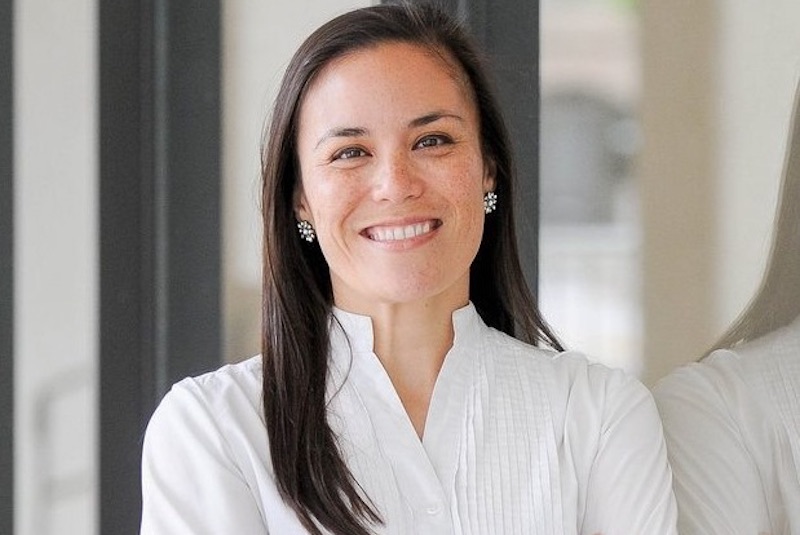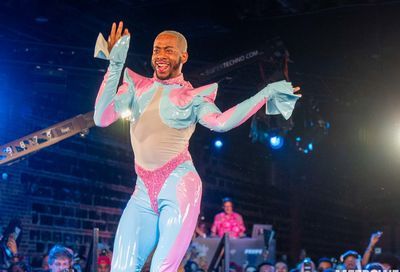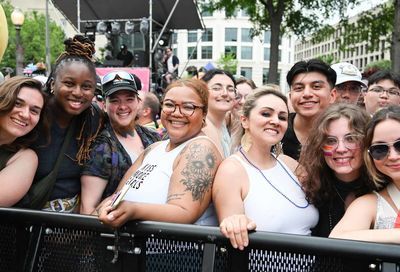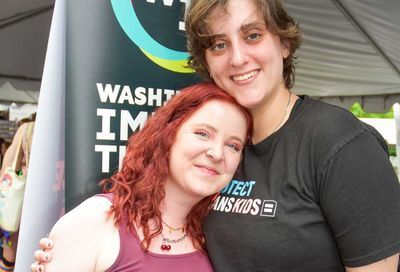Pete Buttigieg ends historic campaign for president
Sources in Buttigieg's campaign said the former Mayor couldn't see a path forward ahead of Super Tuesday

Pete Buttigieg, the openly gay former mayor of South Bend, Ind., has ended his historic campaign for president.
The 38-year-old is suspending his campaign after Saturday’s South Carolina primary, where he finished a distant fourth behind former Vice President Joe Biden, Sen. Bernie Sanders, and businessman Tom Steyer. (Steyer ended his own bid for the presidency yesterday.)
Speaking in South Bend on Sunday evening, Buttigieg said, “The truth is the path has narrowed to a close for our candidacy if not for our cause,” the Associated Press reports.
“We must recognize that at this point in the race, the best way to keep faith with those goals and ideals is to step aside and help bring our party and country together,” he continued. “So tonight, I am making the difficult decision to suspend my campaign for the presidency.”
Despite a strong showing in Iowa and New Hampshire, where Buttigieg finished first and second respectively, his prospects faltered as the campaign moved into the more diverse states of Nevada and South Carolina.
According to reports, Buttigieg’s campaign failed to see a path forward ahead of Super Tuesday, where 13 states will cast their votes. Buttigieg wasn’t leading in any state polls, and is currently third in delegate totals, behind Sanders and Biden.
“We have a responsibility to concede the effect of remaining in this race any further,” Buttigieg said during his speech. “Our goal has always been to help unify Americans to defeat Donald Trump and to win the era for our values.”
Buttigieg also made mention of the historic nature of his candidacy as an openly LGBTQ person, and the effect it would have on young LGBTQ people across America.
“We sent a message to every kid out there wondering if whatever marks them out as different means they are somehow destined to be less than,” he said. “To see that someone who once felt that exact same way can become a leading American presidential candidate with his husband at his side.”
Watch his speech below:
A large problem for Buttigieg was his continual struggle to gain the support of voters of color — a fact not helped by ongoing concerns about his firing of South Bend’s first black police chief, as well as Buttigieg’s handling of the fatal shooting of an unarmed black man by South Bend police last year.
Despite repeated attempts to court black voters, including his much-vaunted Douglass Plan, according to exit polls Buttigieg gained the support of just 3% of black voters in South Carolina, a state where African Americans make up almost 60% of Democratic voters.
As early as this morning, Buttigieg seemed determined to continue on to Super Tuesday, telling NBC’s Meet the Press that his campaign had “reached the conclusion that pushing forward is the best thing we can do for the country and for the party.”
“I think the most important thing right now is to look at what we can do to make sure that we put forward a campaign that is going to end the Trump presidency,” Buttigieg said.
While Buttigieg’s campaign is over, it remains a historic achievement for an LGBTQ candidate, with Buttigieg scoring a number of firsts since officially entering the race almost a year ago.
He became the first viable openly LGBTQ candidate to compete in the Iowa caucuses, the first LGBTQ candidate to win a state, and the first LGBTQ candidate to lead in delegates for a major party’s nomination.
Buttigieg, who has been married to husband Chasten since 2018, also became the first LGBTQ candidate for president to appear in a televised debate — and, subsequently, the first to mention their spouse on a debate stage. He and Chasten also made history when they graced the cover of TIME magazine.
A small-town mayor with little national name recognition, Buttigieg repeatedly bucked the odds to build a viable campaign that outlasted a number of other big names, including former governors and sitting senators, and out-raised a number of others.
Throughout, he pitched himself as a youthful, progressive alternative to the older figures in the race, touting his stewardship of South Bend and its revitalization under his data-led two terms as mayor.
Buttigieg also made frequent mention of his military service, his faith, and his marriage, all of which he used to contrast himself with President Donald Trump — including notably calling Trump out for allegedly faking a disability to avoid being drafted for the Vietnam War.
Faith, in particular, became a core part of stump speeches and debate statements, as well as the framework for a number of clashes with Republicans and conservatives. Buttigieg famously became embroiled in a war of words with Vice President Mike Pence, after Pence tried to portray himself as a victim on LGBTQ and religious issues.
“The vice president is entitled to his religious beliefs,” Buttigieg told CNN’s New Day last April. “My problem is when those religious beliefs are used as an excuse to harm other people.”
Buttigieg also issued a clap back to Trump in January after the president claimed Buttigieg was “trying to pretend” to be a Christian to woo voters of faith. In what became something of a trademark of calmly witty responses for Buttigieg, he retorted, “I’m pretty sure I’ve been a believer longer than he’s been a Republican.”
For Buttigieg, who only came out publicly in 2015, while campaigning for his second term as mayor, the campaign trail also brought a number of moments that put his sexuality front and center. Last May, a speech in front of the Human Rights Campaign led to a rare emotional moment from the normally composed Buttigieg, as he reflected on the launch of his campaign, his marriage to Chasten, and his own struggle with his identity.
“If you had gone back in time 20 years ago, to find me as an awkward teenager, and told him what 2019 was going to look like, he would not have believed you,” Buttigieg said. “If you told him I’d be standing here as a top-tier contender for the Presidency of the United States… and even more amazing, the look on my teenage face if you told him I’d be doing it with my husband looking on.”
A number of LGBTQ organizations lined up to throw their support behind Buttigieg after his campaign started to gain traction in polls. The LGBTQ Victory Fund, which endorses and supports LGBTQ candidates across the country, endorsed Buttigieg for President — the first time the organization had ever endorsed a presidential candidate.
“It was only 11 years ago that all the leading presidential contenders — Republicans and Democrats — opposed full recognition of LGBTQ rights and relationships,” Annise Parker, the president and CEO of the LGBTQ Victory Fund, said in a statement at the time. “Yet here we are, just one decade later, endorsing the first viable LGBTQ candidate for president of the United States — a frontrunner in a crowed primary, neck-and-neck with the most well-known names in American politics.”
Buttigieg’s campaign wasn’t without controversy, including queer activists arguing that his views don’t represent them, Sen. Amy Klobuchar saying that a woman with his resume wouldn’t be a viable contender, or a notable moment where he had to walk back comments after saying that he “can’t even read the LGBT media anymore” because of questions about whether he’s “gay enough.” The former mayor later said he was “grumpy,” and noted the “important role” LGBTQ media plays during the Trump era.
He was also forced to endure an increasing amount of homophobia and bigotry as his campaign progressed, whether it was Republican politicians calling him “queer”, Christians saying he is “deserving of death,” an Iowa voter asking to retract her vote for him after learning Buttigieg is gay, or a number of recent comments questioning his “masculinity” in comparison to Donald Trump.
Despite the attacks on his identity, having a national platform allowed Buttigieg to give LGBTQ children across the country some hope that they could see themselves running for president one day. In addition to utilizing his husband as a campaign surrogate and frequently mentioning their happy, stable marriage, Buttigieg was able to directly interact with LGBTQ people young and old across the country — including one heartwarming moment with a boy in Colorado who asked Buttigieg to “help” him come out.
Nine-year-old Zachary Ro submitted a question at a campaign event asking Buttigieg to help him “be brave” and “tell the world I’m gay.”
“I don’t think you need advice from me on bravery. You seem pretty strong,” Buttigieg responded. He then offered Ro a “couple of things that might be useful,” saying that “it won’t always be easy, but that’s OK, because you know who you are.”
“And that’s really important,” he said, “because when you know who you are, you have a center of gravity that can hold you together when all kinds of chaos is happening around you.”
Buttigieg continued: “The second thing I want you to know is that you’ll never know who’s taking their lead from you, who’s watching you and deciding that they can be a little braver because you have been brave…. You’ll never know whose life you might be affecting right now, just by standing here. There’s a lot of power in that.”
Support Metro Weekly’s Journalism
These are challenging times for news organizations. And yet it’s crucial we stay active and provide vital resources and information to both our local readers and the world. So won’t you please take a moment and consider supporting Metro Weekly with a membership? For as little as $5 a month, you can help ensure Metro Weekly magazine and MetroWeekly.com remain free, viable resources as we provide the best, most diverse, culturally-resonant LGBTQ coverage in both the D.C. region and around the world. Memberships come with exclusive perks and discounts, your own personal digital delivery of each week’s magazine (and an archive), access to our Member's Lounge when it launches this fall, and exclusive members-only items like Metro Weekly Membership Mugs and Tote Bags! Check out all our membership levels here and please join us today!




























You must be logged in to post a comment.